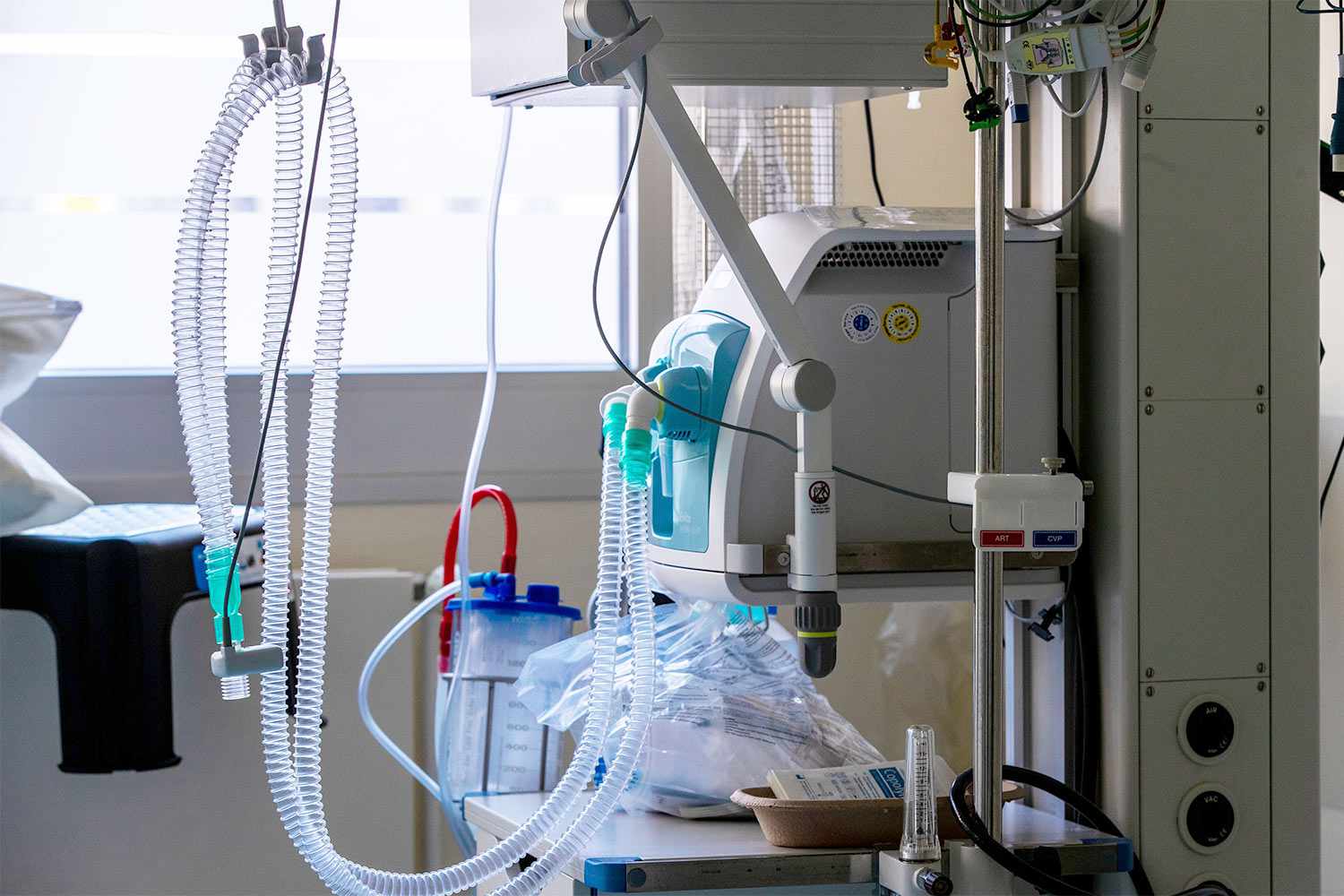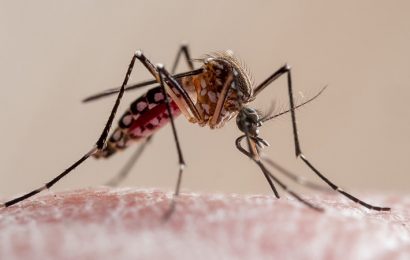

Why is a ventilator so crucial in hospitals?
Rice: A ventilator supports a person’s breathing and basic lung function. We use them in the operating rooms and during surgeries. When we give anesthesia, a person stops breathing on their own so we have to use a ventilator to control their breathing.
In the critical care world, we often use ventilators when somebody has a lung problem that prevents them from being able to adequately breathe on their own. There are two components to breathing: One is getting oxygen into the body, and the other is getting carbon dioxide out of your body. A ventilator helps with both of those.
Can you explain why patients with severe cases of coronavirus need ventilators?
RICE: The virus damages the lining of the lung. That’s where the virus lives. It replicates there. As your body tries to get rid of the virus, sometimes it will attack its own cells, which also damages the lungs. The lung is a place where air is brought in, and goes into the blood, and comes out of the blood. When there’s debris and fluid in the lungs, air cannot get in, and a person can’t breathe. That’s why they need ventilators.
Do you have a ventilator shortage right now at your hospital in Nashville?
RICE: We do not have a ventilator shortage now. We got some additional ventilators before this pandemic. Right now, we have enough, and we’re doing okay. But there are hospitals in New York and other major cities struggling with that. So people are trying to come up with alternative solutions.
Sharing ventilators seems to be one such solution — is that safe?
RICE: This is a debate going on in the critical care world. We hear reports of New York doctors splitting ventilators, which is when one ventilator is used for two patients. I think we don’t do this except in really, really dire times. And in medicine, one of the things that we are really careful about, is trying not to hurt people. If we can’t help people, we just try not hurt them. Sharing ventilators is really tricky to do, and if you do it incorrectly, you could hurt people.
The folks in New York are saying, ‘We need to do this in order to treat people, and we have more people than we have ventilators and we’re setting up protocols to make it as safe as it possibly can be.’
The downside is, it’s not how a ventilator is designed, and it’s not how a ventilator is made to work. Trying to use one ventilator for two patients becomes hard because the patients have to be similar, they have to breathe the same way. The ventilator provides one breath that is split.
Are there other other alternative solutions to the ventilator shortage?
RICE: There are some machines people use for sleep apnea — like a CPAP machine people have at home — that people have tried to adapt and use as ventilators. There are also some machines — ECMO Machines — that are used for a heart-lung bypass that can help oxygenate blood in patients. But hose require big IVs and arterial catheters to use, so there’s some danger in that.
Then we have people are trying to produce their own ventilators. We have engineering students here at Vanderbilt who are trying to increase supply that way.
What about companies that have started making ventilators?
RICE: Many of those manufacturing groups have the ability to make a reasonable ventilator that would work well for most patients. The ventilator is a machine that does a very detailed thing. It puts air into your lungs, and helps air come out. It’s not the most complicated thing in the world. There are some pretty basic ventilators that aren’t that complicated. There are probably a significant number of companies that can make them.
What else do people need to know?
RICE: There are different types of ventilators. There are ventilators that are more complicated, and complex, and do higher-level support. There are also basic ventilators. Not all patients need to have the complicated, complex ventilators. Even basic ventilators we can use. If a patient is complex, and needs a complicated ventilator at the time when they are the sickest, if their lungs get better, we can change them to a more basic ventilator.
When people start saying they’re short on ventilators, many people think they have to have the most complicated, deluxe version that can do anything. There’s a number of patients that just need a basic ventilator. Any of the most basic ventilators would help alleviate the supply shortage and improve healthcare for patients.
As information about the coronavirus pandemic rapidly changes, PEOPLE is committed to providing the most recent data in our coverage. Some of the information in this story may have changed after publication. For the latest on COVID-19, readers are encouraged to use online resources from CDC, WHO, and local public health departments. To help provide doctors and nurses on the front lines with life-saving medical resources, donate to Direct Relief here.
Source: Read Full Article


